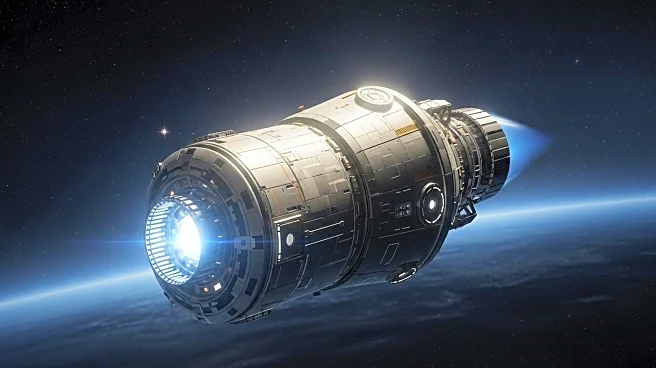What's Happening?
Recent research published in the journal Cell Stem Cell has revealed that stem cells age ten times faster in space than on Earth. This study, led by Dr. Catriona Jamieson from the Sanford Stem Cell Institute at the University of California, San Diego, involved sending stem cells collected from bone marrow to the International Space Station aboard SpaceX missions. The cells were housed in nanobioreactors and monitored in CubeLabs, both in space and on Earth. The findings indicate that the stress of spaceflight accelerates aging in stem cells, which are crucial for tissue repair and regeneration. This discovery builds on previous studies, including NASA's research on the Kelly twins, which showed rapid immune responses and other aging signals in astronauts during space missions.
Why It's Important?
The accelerated aging of stem cells in space has significant implications for long-duration space missions planned by governments and private companies. Understanding these health risks is vital for ensuring astronaut safety and mission success. The findings also offer insights into biological aging processes on Earth, potentially aiding in the study of age-related diseases such as cancer and neurodegenerative disorders. As interest in space travel grows, addressing these health challenges becomes increasingly crucial for the future of human space exploration.
What's Next?
Further research is needed to explore the mechanisms behind accelerated stem cell aging in microgravity and to develop strategies to mitigate these effects. This could involve designing protective measures for astronauts or exploring treatments to counteract the aging process. The study's results may also prompt discussions among space agencies and private companies about the health protocols for future space missions, especially those involving extended stays in space.
Beyond the Headlines
The ethical considerations of sending humans on long-duration space missions, knowing the potential health risks, may become a topic of debate. Additionally, the study could influence public policy regarding space exploration funding and priorities, as understanding and mitigating health risks are essential for sustainable human presence in space.










